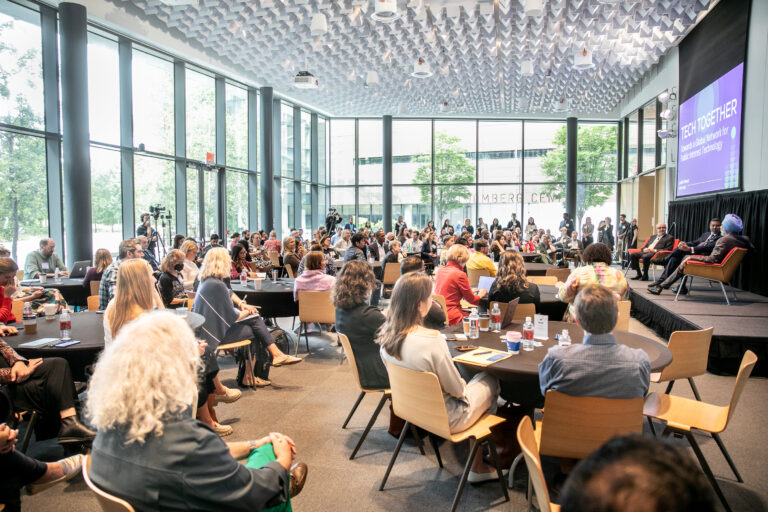SFE shares a belief with a number of other foundations that our grants need to serve two key functions in order to be impactful. On a fundamental level, our grants have to enable grantees to do their work. In a larger sense, our grants need to contribute to a larger community of practice, composed of those working in the areas we serve, and others working in the field of philanthropy. Creating the connective tissue between grantee work and this wider world is part of the grantmaking philosophy around Effective Philanthropy.
We believe that strengthening the nonprofit sector as a whole through practicing Effective Philanthropy can happen through supporting individual organizations, sharing lessons with others, and engaging our peers to learn about best practices. We aim to improve the field overall by employing the following mindsets across our grantmaking practice:
1. Supporting Organizational Effectiveness
In our experience, nonprofits don’t traditionally invest in developing their own organizational capacity.¹ This means that support for critical infrastructure in areas like leadership, operational systems, impact evaluation, and communications are often under-resourced. We design grants that explicitly serve these needs — either by funding programming to enhance one or all of these specific areas, or by leveraging the expertise of members of our own team — in order to help the nonprofits we serve build the tools they need to make an even greater impact in the long term.
2. Enhancing Engagement with the Field
As members of the philanthropic community, we recognize that the things that make us different from our peers (philosophy, approach, systems) can often lead to the best learning opportunities. Hearing about successes, failures, and solutions to common problems has helped us become better grant makers and improve our own work, in the same way that we hope sharing our own highs and lows can help inform others. Promoting a culture of sharing positions all grant makers to better serve nonprofits, and ultimately, enables all of us to be more effective together.
Our practice of Effective Philanthropy will continue to evolve over the coming year as we learn more about the needs of our grantees and the greater philanthropic community. We’ll be engaged throughout the process, as we share our findings and explore with our peers. Elevating the voices of grantees, convening grantees and funders, and supporting academic research on the practice of philanthropy are all crucial pieces of our work to improve the field as a whole, and our philosophy of Effective Philanthropy will help us both to support others and to work more effectively.
1. Gregory, Ann Goggins, and Don Howard. “The Non-Profit Starvation Cycle.” Stanford Social Innovation Review, 2009, ssir.org/articles/entry/the_nonprofit_starvation_cycle





